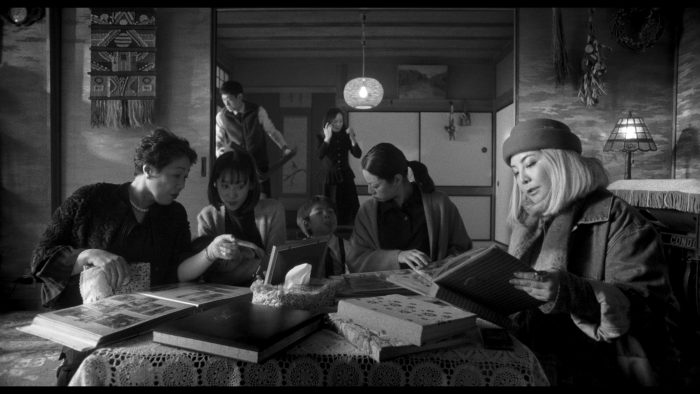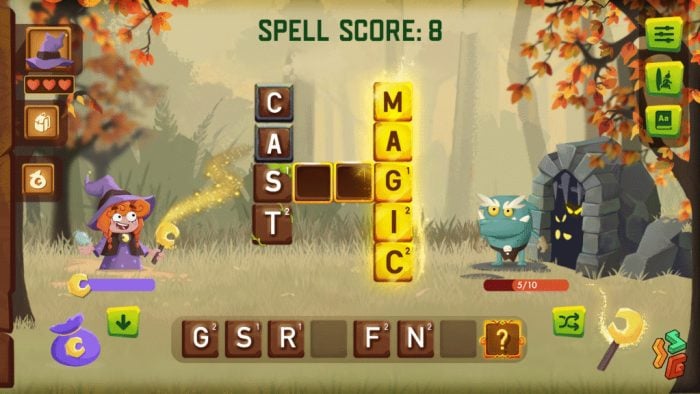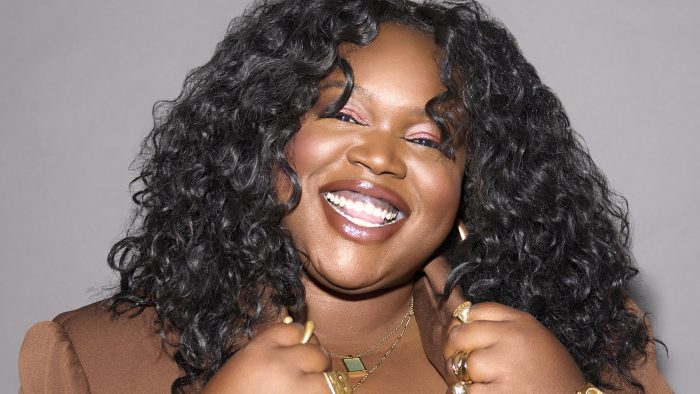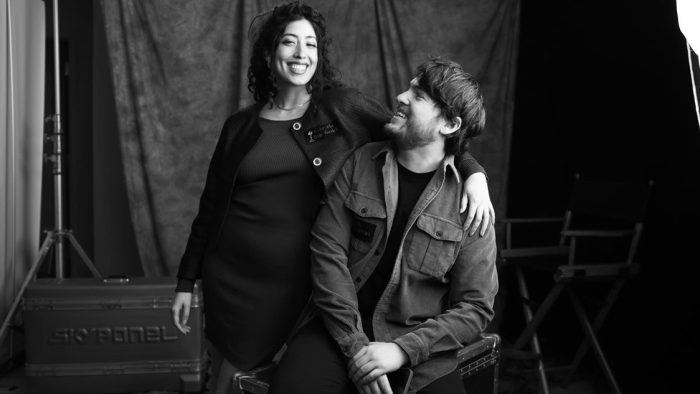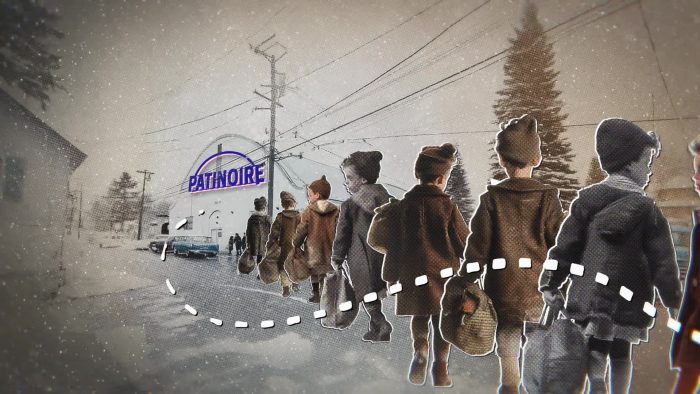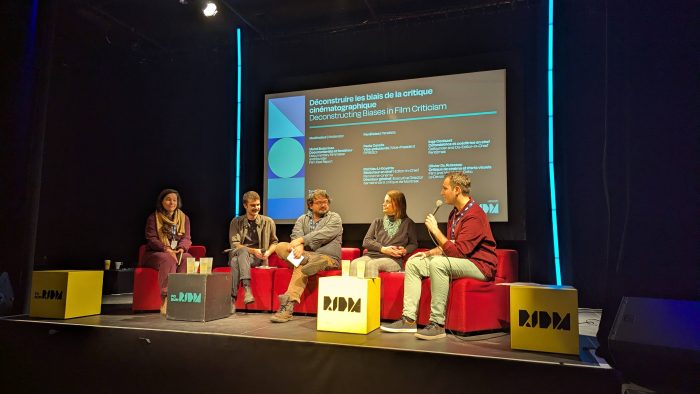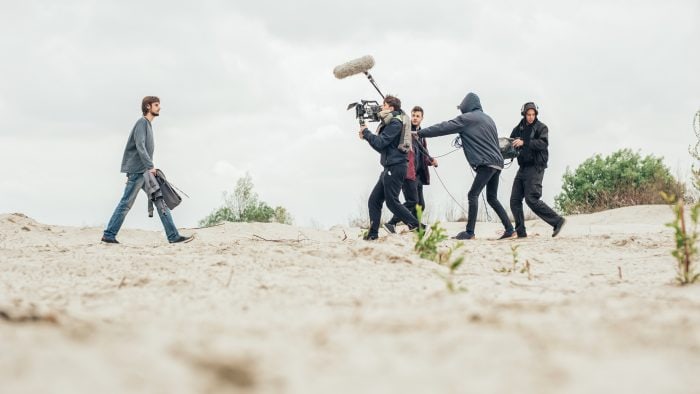Francophone creators outside Quebec make their voices heard
Despite headwinds, a new generation of francophone creators living in anglophone communities are finding success across Canada. We look at two projects produced and shot entirely outside Quebec that are making their mark en français.
A love letter to Manitoban and Canadian francophones. That’s how the two founders of Wookey Films, Janelle and Jérémie Wookey, describe Malgré moi (Despite Myself).
The drama, based on the siblings’ original concept, tells of a woman who travels from Quebec to Manitoba for love, but is betrayed, and has to decide what to do next. The series airs over four 60-minute episodes on Radio-Canada’s Tou.tv later this year.

The Wookeys’ concept for Malgré moi is based on their experiences as native-born Franco-Manitobans, and their Franco-Métis production company is producing the series.
"We were born here, we grew up here, and throughout our lives we’ve seen people from Quebec visit, travel and move here, and then move back to Quebec,” says Janelle. “We've developed many friendships with these people and have witnessed their experiences in Winnipeg, within the francophone community."
Going From English to French
While Malgré moi’s screenplay was written by Quebec writers Sophie Bienvenu and Edith Kabuya, the series was directed by Franco-Ontarian Maxime Beauchamp.
“We’re pleased to be able to show what we’re capable of doing...and proud to be doing it,” Beauchamp says when reached in Winnipeg, where he’s busy shooting the series.
After completing his studies in Vancouver, Beauchamp worked in English until a few years ago. He’s based in Wendover, Ontario, east of Ottawa. “Now I make a living exclusively by directing French-language projects outside of Quebec,” says the director.
“I feel strongly that we have a generation of young creators — if I can use ‘young’ for creators in their mid-30s and early 40s — behind some really interesting projects,” he says. “And we can work in French on drama productions at last.”
Funding Comes Up Short
However, despite the enthusiasm of francophone creators, the situation is not all that promising for those hoping to work in French within English-majority provinces.
While membership in French-language organizations that represent minority-language audiovisual creators is growing, funding programs are not. At least, that’s what Bruno Boëz, executive director of the Regroupement des artistes cinéastes de la francophonie canadienne (RACCORD), and Carol Ann Pilon, executive director of the Alliance des producteurs francophones du Canada (APFC), are seeing.
The Canada Media Fund’s (CMF) financial commitment to French-language audiovisual production outside of Quebec, for example, remained relatively stable in 2024/25 at $12.4-million. But for 2025/26 a 10 percent decrease is anticipated due to an overall decline in revenues for all CMF programs.
Boëz feels the French-speaking minority could be in better shape. “The French language is in decline in Canada, and we know very well that the vitality of a language is linked to culture. We need opportunities to enjoy works produced by creators from our own communities,” he says.
Then there is the upheaval the audiovisual industry has been contending with for several years. “We’re seeing a general decline in independent production across the country year after year in every sector, and the French-speaking community outside Quebec is certainly no exception,” Pilon says.
Filming in French in Toronto
Despite this gloomy scenario, it is possible to work in French in Toronto, Canada’s film and television hub. Director/producer Philippe Montpetit and actor/screenwriter Carinne Leduc, both from the Montreal region, are examples.
Leduc, who has lived in Toronto for the past 15 years, just finished filming 11h11, a series of eight 30-minute episodes. She wrote the comedy and also stars as a tarot card reader trying to help people navigate their lives.

“It’s the first French-language primetime series outside Quebec to be shot in Toronto in French,” Montpetit says. He’s producing the series through Orbite Média, a company he founded 10 years ago to finance French-language projects.
“It’s not easy producing and directing a French-language series outside Quebec,” he says. “But I believe it’s important because people forget that there are a lot of francophones outside Quebec, and we need to spread the word.”
Of course, filming in Toronto can require some adjustment. While most of the actors were francophones, many of the crew were anglophones. Montpetit and Leduc quickly realized budgetary expectations were not the same here.
“We were shooting very fast, at typical Quebec speed, something the Torontonians were not used to. We heard, ‘Oh my God, you’re not going to shoot 13 pages in one day,’” Leduc recalls with a smile.
Every Day Can Be a Challenge
“Speaking French in minority-francophone communities can be a daily challenge,” Pilon says. “We’ve been doing it for over 200 years, and we’ll continue to do so, but we do need cultural, audiovisual, cinematographic and online offerings of French-language content to ensure our language and culture survive.”
There are about 1-million francophones living in Canada outside of Quebec. To reach more viewers, Janelle Wookey intends to capitalize on the Malgré moi model of using Québécois stars like Schelby Jean-Baptiste and Eddy King to help attract a larger Quebec audience.
That said, the majority of the cast remains Franco-Manitoban, something dear to the hearts of those making the series. “There is plenty of francophone talent in Manitoba,” Beauchamp says. “But there are few acting opportunities for them outside Quebec.”
Prior to the shoot, the production organized three days of coaching for the less-experienced actors, to help them feel more confident on set.
Beauchamp believes filming with a Franco-Manitoban crew is crucial for representing this community on screen. But what’s even more important is the creative process.
“Creating in Winnipeg, in an environment with people who grew up in a francophone-minority atmosphere, is a real breath of fresh air,” he says.
